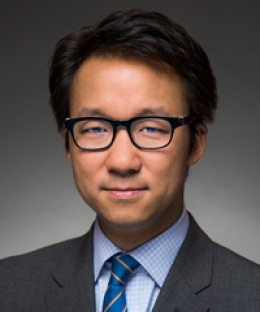
Youngjae Lee
- Visiting Professor of Law
J.D., Harvard Law School, 1999
Seoul National University, Department of Philosophy, Fulbright Scholar, 1995-96
B.A., Swarthmore College, 1995
Criminal Law
Criminal Procedure
White Collar Crime

J.D., Harvard Law School, 1999
Seoul National University, Department of Philosophy, Fulbright Scholar, 1995-96
B.A., Swarthmore College, 1995
Criminal Law
Criminal Procedure
White Collar Crime
Youngjae Lee is Professor of Law and Associate Dean for Research at Fordham University School of Law. Lee’s scholarship focuses on questions of criminal culpability, criminal procedure, and state punishment, and he has written extensively under three broad headings: criminal jury and reasonable doubt, criminalization of disobedience, and the principle of proportionality in criminal law.
At Fordham and as a visiting professor of law at Harvard Law School, University of Chicago Law School, and UCLA School of Law, he has taught criminal law, criminal procedure, international white collar crime, international criminal law, criminal law theory, and torts. Lee joined the Fordham faculty in fall 2005 from NYU School of Law, where he was an Alexander Fellow. Before teaching, Lee worked as an attorney at Jenner & Block in Washington, D.C. and in the U.S. Department of Justice, Civil Division, Federal Programs Branch (Honors Program). Lee is a 1995 graduate of Swarthmore College and a 1999 graduate of Harvard Law School, where he was Primary Editor of the Harvard Law Review.
Lee’s representative publications include: “Reasonable Doubt and Disagreement,” 23 Legal Theory 203 (2017); “Military Veterans, Culpability, and Blame,” 7 Criminal Law and Philosophy 285 (2013); “Punishing Disloyalty?: Treason, Espionage, and the Transgression of Political Boundaries,” 31 Law and Philosophy 299 (2012); “Recidivism as Omission: A Relational Account,” 87 Texas Law Review 571 (2009); and “The Constitutional Right Against Excessive Punishment,” 91 Virginia Law Review 677 (2005).
Lee is currently working on a series of articles on mala prohibita and regulatory offenses (“The State’s Right to Evidence and Duties of Citizenship, 31 Philosophical Issues (A Supplement to Noûs) 210 (2021)”; “Mala Prohibita, the Wrongfulness Constraint, and the Problem of Overcriminalization,” 41 Law and Philosophy 375 (2022); “Mala Prohibita and Proportionality,” 15 Criminal Law and Philosophy 425 (2021); “Proxy Crimes and Overcriminalization,” 16 Criminal Law and Philosophy 469 (2022)) and a book project on punishing disobedience (Criminalizing Disobedience (forthcoming Oxford University Press)).